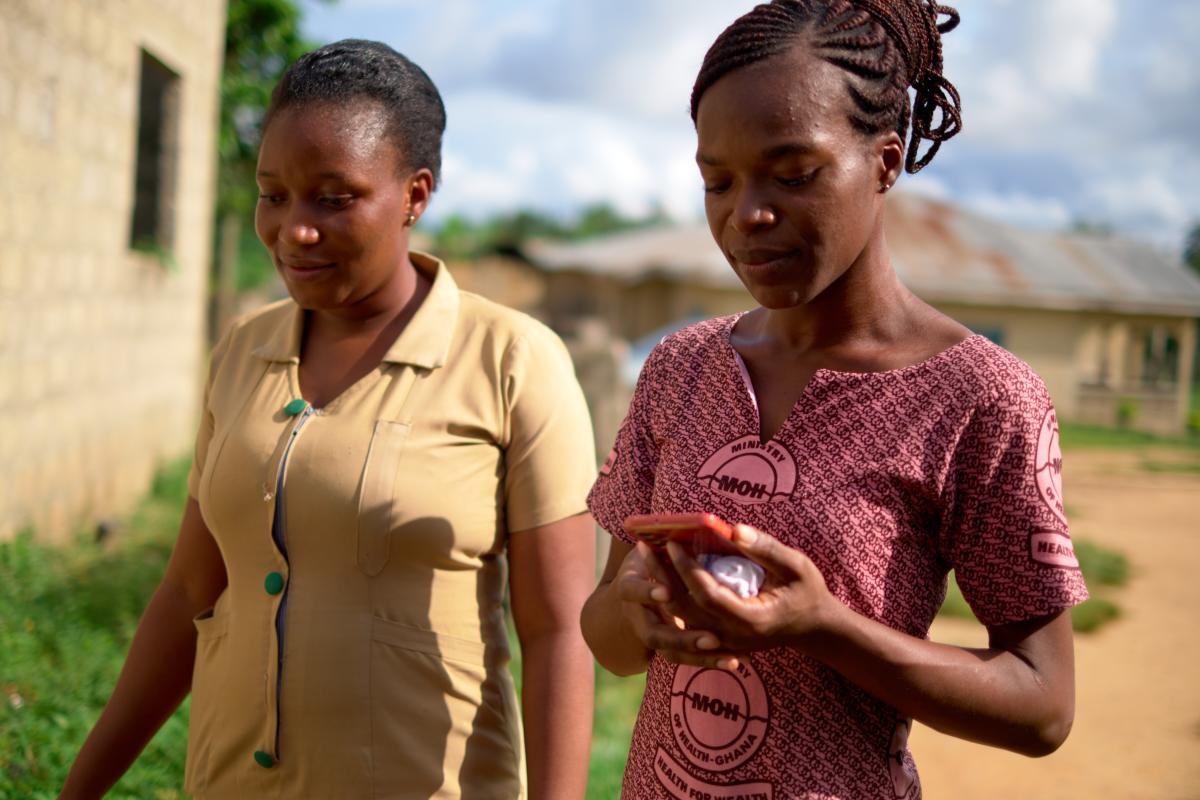World Health Organization
Empowering health workers and mobilizing communities to improve early detection and treatment of noncommunicable diseases in Ghana
22 Oct 2023
World Health Organization | 17 Apr 2024
In Sub-Saharan Africa, many countries face a double disease burden with high HIV prevalence and a rise in noncommunicable diseases (NCDs) such as diabetes and hypertension. In Ghana, NCDs account for 43% of premature deaths, while HIV prevalence is at 1.6%. Prevention and care services for HIV and NCDs are currently provided separately, despite multiple benefits of an integrated approach to clinical care, particularly improved coordination, enhanced accessibility, and optimised resources. An implementation research study is now looking to close evidence gaps regarding the practicality, suitability, and feasibility of implementing an integrated approach in Ghana.

Leading the study is the University of Ghana, supported by the Norway Development Agency (Norad), WHO Department of NCD, Rehabilitation and Disability and the Alliance for Health Policy and Systems Research. In collaboration with the WHO Country Office in Ghana, jointly with health workers and community representatives, the study team is working to developand evaluate a community-based intervention that integrates hypertension and diabetes care into the HIV continuum of care. Conducted from September 2023 to July 2024 in Ashaiman Municipality, the study also explores contextual factors for integration, gathers stakeholder perspectives on the proposed intervention, and assesses the feasibility of this integrated approach.
The research approach covers three phases: First, researchers are assessing the needs and challenges of integrating NCD care into HIV treatment through stakeholder reviews and community group discussions. In a second, co-creation phase, workshops involving healthcare workers, community leaders, and people living with HIV and hypertension and type 2 diabetes will support developing a community-based approach to integrate NCD care with HIV treatment. Finally, the proposed integrated approach will be tested for acceptability and feasibility, again gathering input from community members, healthcare providers, and policymakers to ensure it meets their needs.
The successful implementation of integrated care approaches requires a tailored engagement strategy able to address concerns raised by stakeholders. Engaging stakeholders throughout the implementation research process is therefore vital for ensuring buy-in, scaling-up interventions, and achieving sustainability.
In Ghana, key stakeholders include people living with HIV, caregivers, health workers from NCD and HIV clinics and hospitals, Ghana Health Service representatives, HIV and NCD program officers, and members of community-based organization. These stakeholders are actively participating in discussions and interviews during the research process, and contribute directly to co-creating intervention strategies. By fostering collaboration and incorporating stakeholders’ input into the intervention design, Ghana's experience in Ashaiman will help to capitalize on innovation and partnership to enhance health service delivery efficiency and coverage.
Numerous challenges for the integration of NCD care into HIV services have been identified already, with stigma a significant concern among patients, community members, and healthcare workers. The lack of privacy associated with receiving care for both NCDs and HIV at the same location risks exposing people living HIV to stigma within healthcare facilities and in their communities. Additionally, patients expressed concerns about divided attention from healthcare providers, potentially leading to errors and a less personalized care. Health workers also raised issues such as anticipated difficulties with documentation, inadequate infrastructure for patient care, and shortages of essential medications.

However, stakeholders also noticed several facilitators that could promote successful integration. Educating the public through promotion materials about the importance of bringing NCD care into HIV services emerged as a crucial starting point. Involving the community in the integration process was highlighted as a key strategy to ensure acceptance. Health workers noted existing collaborations between healthcare units within facilities that could be leveraged further.
Effective implementation of the intervention will also require building the capacity of Community Health Officers in community-based screening for HIV and NCDs, as well as providing support for individuals with multiple long-term conditions.
The findings of this implementation research study are expected to enhance the prevention, early detection, management, and prognosis of NCDs and HIV in Ghana, potentially serving as a model for other countries grappling with similar challenges.
Detailed research findings will be shared in late 2024.
This country story is part of a series on implementation research projects aiming to improve integrated NCD services at primary health care (PHC) level.